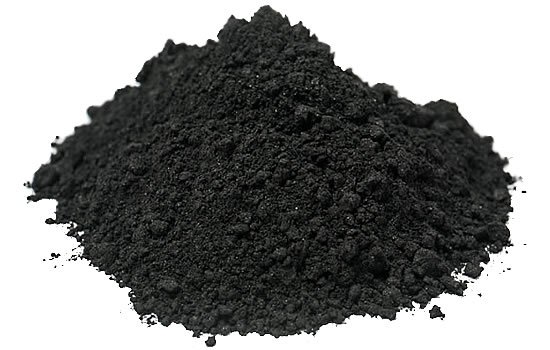
Audio By Carbonatix
Pollutants from wastewater treatment plants in Ghana are released into water bodies and the environment due to poor knowledge about recycling treatment technologies.
In a bid to curb this, the Regional Water and Environmental Sanitation Centre, Kumasi (RWESCK) at the Kwame Nkrumah University of Science and Technology and Sewerage Systems Ghana Limited are using activated charcoal from faeces to purify waste water.
The results of their research is contained in the journal, Advances in Materials Science and Engineering.
The study sought to evaluate the performance of a novel material; faecal sludge-derived activated charcoal for wastewater pollutant removal.
For the study, the dewatered faecal sludge was dried on a sand drying bed for three months.
The dried faecal sludge was used to produce activated charcoal, which was then used to purify the waste water.
The results showed high removal efficiency of pollutants and a decrease in the muddiness, the smell, colour among others of the wastewater.
The filtered water was even clearer than the lab tap water used as a comparison.
“Dry faecal sludge-derived activated carbon (DFSAC) produces effluent that is substantially pure due to the high toxicity removal efficiency, making the effluent water free from impurities, dissolved solids, and turbidity.
“The obtained result is an affirmation of the potential of the dry faecal sludge-derived activated carbon from effectiveness in the removal of waste water pollutants on a large-scale level,” lead researcher, Issahaku Ahmed explained.
The water obtained from the system can be used for purposes such as cleaning, irrigation, chemical dissolution in wastewater treatment, washing of cars, and flushing of the water closet when disinfected.
“This method of treatment using DFS-activated charcoal may require replacement after several treatments are done, but dry faecal sludge is always readily available from the wastewater treatment plant (WWTP); hence, DFS-activated charcoal can easily be available, it's cheap, and has a high degree of purification potential, The study recommends that WWTP operators should consider closing the resource loop by ensuring effluent water from treatment facilities undergoes a cheap but more effective means of purification for reuse,” Mr. Issahaku said.
Latest Stories
-
Spain to probe social media giants over AI-generated child abuse material
23 seconds -
J.J. Rawlings Foundation mourns the death of June 4 uprising figure Sgt. Peter Tasiri
31 minutes -
Third round of Russia-Ukraine talks to take place as strikes continue
38 minutes -
Kofi Asmah: Cocoa prices, turbulence and the cost of true leadership
40 minutes -
Women in Russian man videos scandal not cheap – Issifu Ali
50 minutes -
Cedi safe amid digital asset growth – BoG
58 minutes -
Photos: EPA busts 14 containers of illegal mining machines at Tema Port
1 hour -
Harmonious Chorale to represent Africa in Poland and Sweden as it kicks off 20th-anniversary celebrations
1 hour -
We can’t wait forever for AfCFTA – AGI demands alternative regional trade access
1 hour -
The Drama of Cocoa politics: When farmers become puppets
1 hour -
CSIR-BRRI advocates use of local materials in production to reduce cement prices
1 hour -
Three miners killed in rock collapse at Gbane
2 hours -
Awudome, Osu cemeteries not full — Managers
2 hours -
Africa’s grand stage of honour: Why Ghana hosts POTY 2026
2 hours -
Hillary Clinton accuses Trump administration of a ‘cover-up’ over its handling of Epstein documents
2 hours

